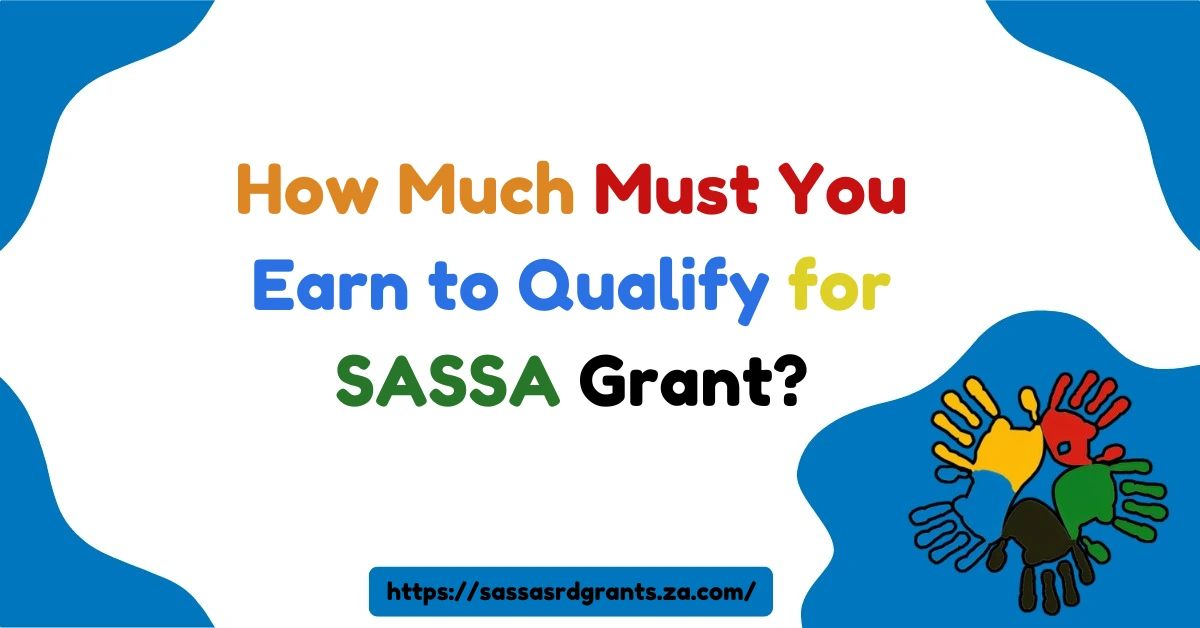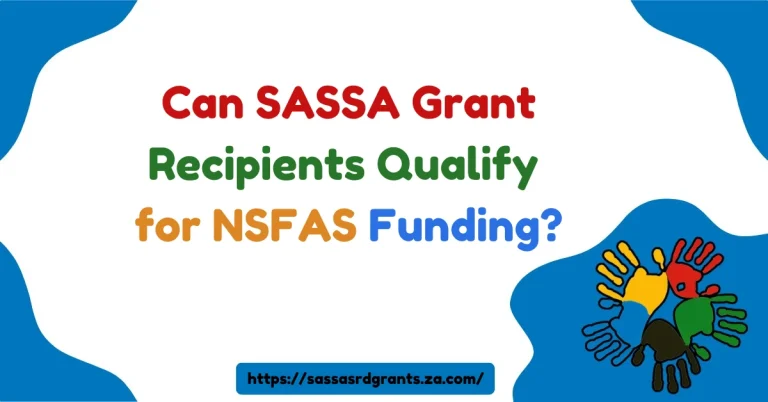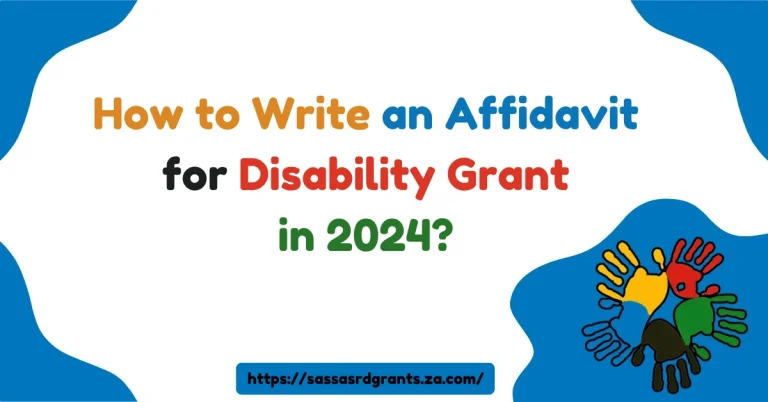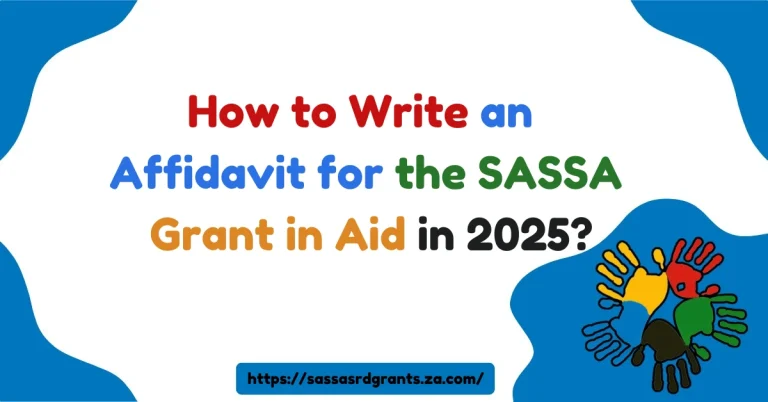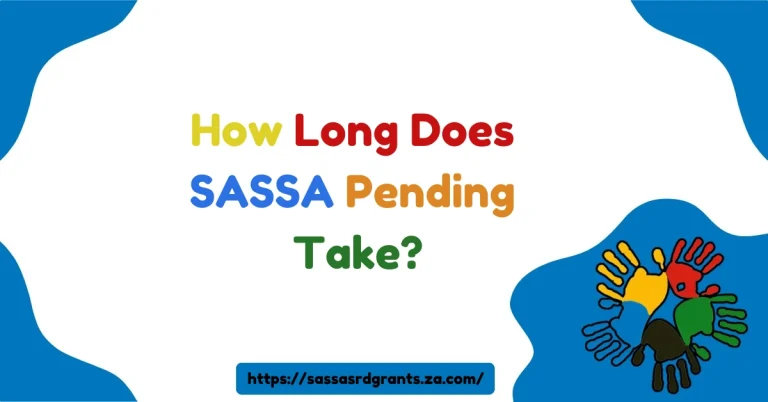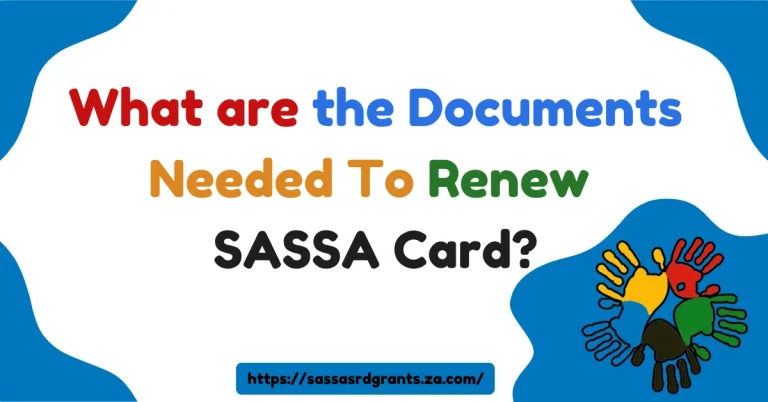How Much Must You Earn to Qualify for SASSA Grant?
Have you ever wondered how much you need to earn to qualify for a SASSA grant? Let’s break it down in simple terms.
The South African Social Security Agency (SASSA) offers financial assistance to those who truly need it.
But to ensure fairness, there are rules about how much money you can make and still be eligible for these grants. Understanding these rules can help you access the support you need.
In this guide, we’ll explore the income limits for each type of SASSA grant, who can apply, and how to navigate the application process. Let’s dive in!
How Much Must You Earn To Qualify For SASSA Grants?
Here’s a clear and organized table that presents the income limits for different SASSA grants:
Grant Type Maximum Monthly Income (Single) Maximum Monthly Income (Married) Social Relief of Distress R624 N/A Child Support Grant R5,000 R10,000 Care Dependency Grant R20,800 R41,600 Older Persons Grant R8,070 R16,140 Disability Grant R8,070 R16,140
What Are SASSA Grants?
SASSA provides financial assistance to South Africans who need support due to specific circumstances, such as unemployment, disability, old age, or caring for dependents. Think of it as a safety net designed to assist those who need it most.
The agency offers various types of grants, each aimed at addressing different needs. These include:
- Social Relief of Distress (SRD) Grant
- Child Support Grant
- Foster Child Grant
- Care Dependency Grant
- Older Persons Grant
- Disability Grant
Each of these grants comes with its own eligibility criteria and income thresholds. Let’s explore them in detail.
Key Points to Remember:
- No Income Limit for Foster Child Grants: If you’re fostering a child, you can apply regardless of your income.
- Asset Consideration: Besides your income, SASSA also evaluates your assets to ensure only those who genuinely need assistance qualify.
Who Is Eligible for SASSA Grants?
Before we discuss income, let’s clarify who can apply. To qualify for any SASSA grant, you must meet the following basic requirements:
- Be a South African citizen, permanent resident, or recognized refugee.
- Reside in South Africa.
- Not live in a state institution (e.g., prison or psychiatric hospital).
- Not receive another SASSA grant for yourself.
These foundational criteria apply to all grants, with additional rules varying by grant type.
How Does SASSA Calculate Income?
SASSA considers various income sources to determine your eligibility. These include:
- Wages or salaries
- Income from investments
- Rental income
- Pensions or retirement funds
Excluded Income Sources:
- Payments for medical aid or UIF (Unemployment Insurance Fund) contributions.
- Certain pension fund contributions.
It’s essential to provide accurate income details during your application. Dishonesty can result in penalties or disqualification.
How to Apply for a SASSA Grant
Applying for a SASSA grant is straightforward, but it requires specific documents. Here’s what you need:
- South African ID or valid passport.
- Proof of residential address.
- Proof of income, such as pay slips or bank statements.
- Birth certificates for child-related grants.
Where to Apply?
- Visit your nearest SASSA office.
- Use mobile SASSA units available in certain areas.
- Apply online where applicable.
Tips for a Successful Application
- Be truthful about your financial situation. Misrepresentation can lead to legal consequences.
- Keep your income records up to date and ready to submit.
- Notify SASSA immediately if your financial circumstances change.
Frequently Asked Question (FAQ’s)
Can I receive more than one SASSA grant?
Generally, you can only receive one grant for yourself. However, you may qualify for additional grants if they are for dependents, such as a child support grant.
What happens if I start earning more money?
Inform SASSA if your income increases. Depending on the grant, your eligibility might be reassessed, but you won’t necessarily lose your grant immediately.
Do my assets, like my car, count as income?
Yes, SASSA considers assets when evaluating eligibility, but the weight of this consideration varies by grant type.
Common Misconceptions
Let’s clear up some myths about SASSA grants:
- “Part-time workers don’t qualify for grants.”
Not true! Income limits determine eligibility, not your employment type. - “Owning property disqualifies you.”
Not necessarily. Modest assets often don’t affect eligibility. - “Married couples must always apply together.”
While some grants evaluate combined income, others allow individuals to apply separately.
How COVID-19 Affected SASSA Grants
During the pandemic, SASSA introduced the SRD grant to assist those financially impacted by COVID-19. This temporary grant highlighted the importance of staying updated on policy changes.
Conclusion
Understanding the income limits for SASSA grants can help you secure the financial support you need. These grants exist to assist individuals and families during tough times.
Remember:
- Check the specific income thresholds for the grant you’re applying for.
- Be honest and transparent when providing information.
- Keep yourself informed about policy updates, as grant rules can change.
If you think you qualify for a SASSA grant, don’t hesitate to apply. Help is available, and knowing the guidelines makes the process easier.
